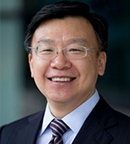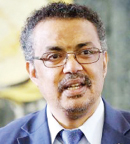The World Health Organization (WHO) and the International Agency for Research on Cancer (IARC) released two coordinated reports in light of World Cancer Day in response to government calls for more research into the scope and potential policies and programs to improve cancer control.
WHO Report
WHO’s report, Report on Cancer: Setting Priorities, Investing Wisely, and Providing Care for All, highlights the need to improve cancer services in low- and middle-income countries. WHO warns that the world will see a 60% increase in cancer cases over the next two decades if current trends continue. The greatest increase—an estimated 81% in new cases—is projected to occur in low- and middle-income countries, where survival rates are currently lowest.
This is largely because these countries have had to focus limited health resources on combating infectious diseases and improving maternal and child health, while health services are not equipped to prevent, diagnose, and treat cancers. In 2019, more than 90% of high-income countries reported that comprehensive treatment services for cancer were available in the public health system, compared to less than 15% of low-income countries.

Ren Minghui, MD, PhD, MPH

Tedros Adhanom Ghebreyesus, PhD, MSc
“This is a wake-up call to all of us to tackle the unacceptable inequalities between cancer services in rich and poor countries,” said Ren Minghui, MD, PhD, MPH, Assistant Director General, Universal Health Coverage/Communicable and Noncommunicable Diseases at WHO. “If people have access to primary care and referral systems, then cancer can be detected early, treated effectively, and cured. Cancer should not be a death sentence for anyone, anywhere.”
“At least 7 million lives could be saved over the next decade by identifying the most appropriate science for each country’s situation, by basing strong cancer responses on universal health coverage, and by mobilizing different stakeholders to work together,” said Tedros Adhanom Ghebreyesus, PhD, MSc, WHO Director General.
WHO highlights a wide range of proven interventions to prevent new cancer cases. These include controlling tobacco use; vaccinating against hepatitis B to prevent liver cancer; eliminating cervical cancer by vaccinating against human papillomavirus; screening and treatment; implementing value-based, high-impact cancer management; and ensuring access to palliative care, including pain relief.
IARC Report
IARC’s report—World Cancer Report: Cancer Research for Cancer Prevention—focuses on prevention and offers the most comprehensive overview of relevant research available to date, ranging from descriptive etiology, cellular and molecular biology, toxicology, and pathology through to behavioral and social science. Key chapters include discussions on the impact of inequalities in cancer, vaccination, and screening; genomic individual susceptibility to cancer; and the finer identification of those at risk, which may allow precision cancer prevention.

Elisabete Weiderpass, MD, MSc, PhD
“The past 50 years have seen tremendous advances in research on cancer prevention and treatment,” commented Elisabete Weiderpass, MD, MSc, PhD, Director of IARC. “Deaths from cancer have been reduced. High-income countries have adopted prevention, early diagnosis, and screening programs, which together with better treatment have contributed to an estimated 20% reduction in the probability of premature mortality between 2000 and 2015…low-income countries only saw a reduction of 5%. We need to see everyone benefiting equally.”

